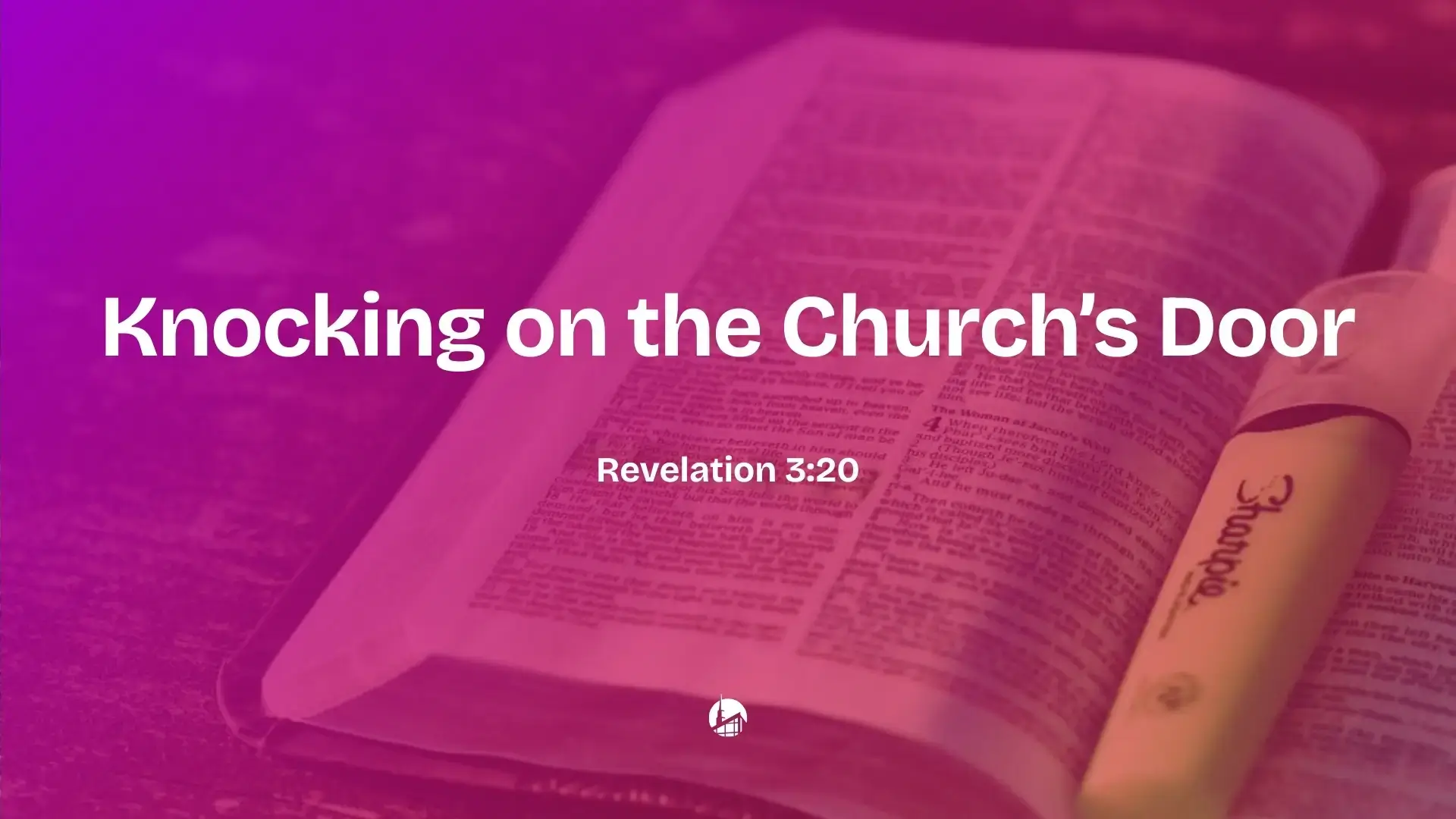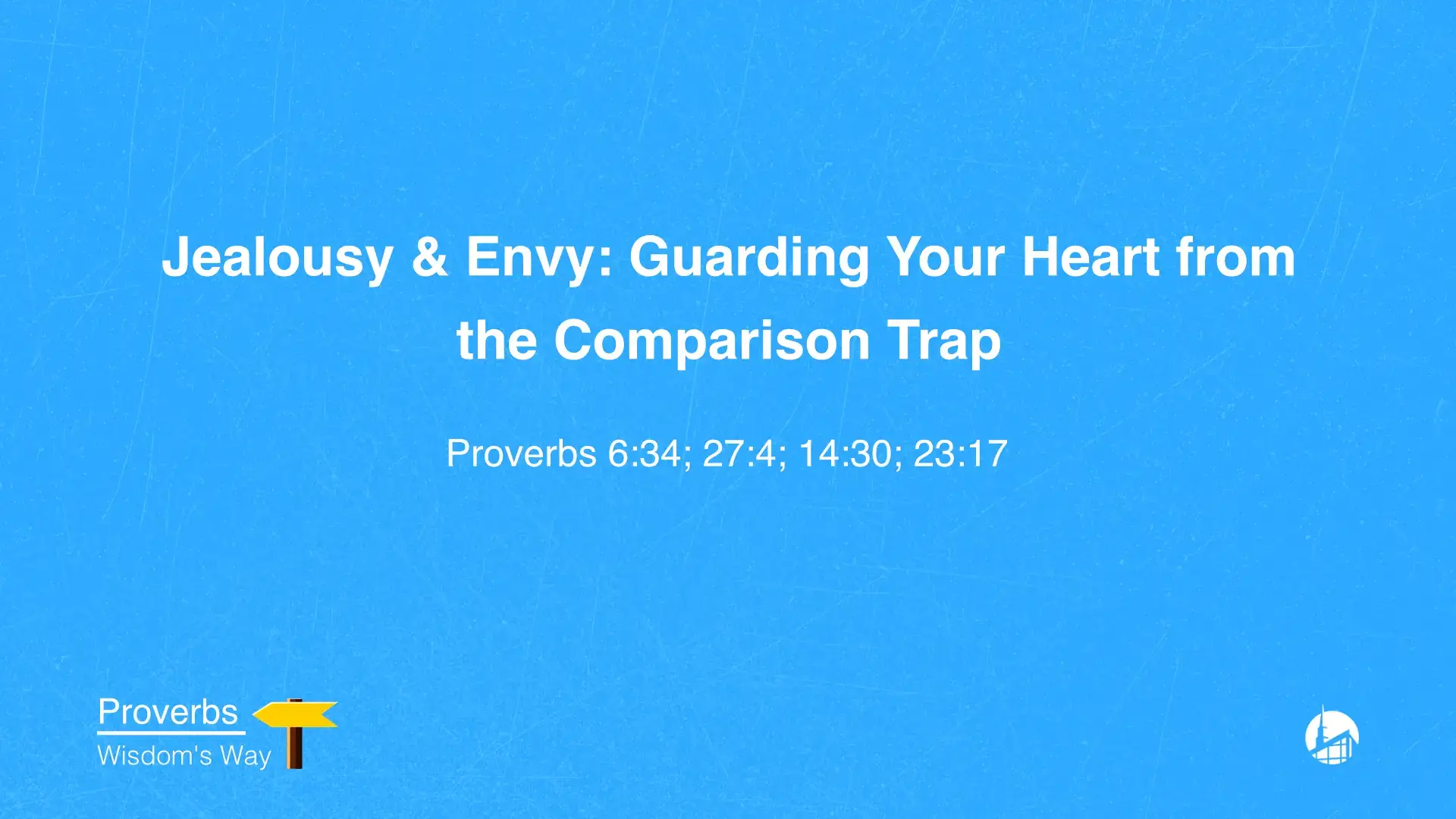In the Gospel of John, Jesus poses a profound question to two disciples who begin following Him: “What seek ye?” This inquiry, found in John 1:35-39 (KJV), cuts to the heart of spiritual maturity and true discipleship. Pastor Levéillé explores how our desires reveal the depth of our relationship with Christ, moving beyond initial salvation to a longing for His presence. Drawing from the text where John the Baptist declares, “Behold the Lamb of God,” and the disciples ask, “Master, where dwellest thou?”, the sermon challenges believers to prioritise fellowship with Jesus above all else.
Examine What You’re Really Seeking
Spiritual maturity manifests in what people want from Jesus. When we first encounter Him, we rightly seek salvation, for no one can know Christ without it. As believers grow, however, much can be discerned about the Christian life by examining desires toward Jesus. New believers come to Him for forgiveness, help, healing, and provision, all of which are good and should be brought before Him, as He delights in meeting needs according to His will.
Yet growth involves realising that the greatest gift Jesus offers is Himself. Sometimes prayers for healing go unanswered, financial hopes remain unfulfilled, or circumstances persist despite pleas, much like the Apostle Paul’s thorn in the flesh, where God responded, “My grace is sufficient for thee.” Maturity emerges when one moves beyond seeking things from Jesus to simply wanting to be with Him.
Jesus turns to the following disciples and asks, “What seek ye?” This first recorded question from His lips in John is not a command or doctrine but a probing inquiry into the soul. It exposes motives, distinguishing curiosity from commitment. Many are curious about Jesus, yet few become committed. Statistics suggest only about 15 percent of church visitors become members, highlighting how curiosity often fades without true desire.
The question searches the heart: Do we seek His power, teachings, or presence? Right doctrine and direction matter, but desire for who Jesus is remains essential. In rabbinic tradition, probing questions ensured students’ sincerity; Jesus asks deeper still, focusing on desire in Him rather than needs from Him.
Consider counselling scenarios: If a marriage fails despite pleas, would one still follow Jesus? If financial ruin persists, does commitment endure? Sometimes faithfulness increases during crises to bargain for solutions, but true pursuit says, “Lord, whatever happens, I want fellowship with You.” These disciples differ from crowds seeking bread or miracles; they already know Him as the Lamb of God, yet crave more than forgiveness. A heart, like a compass pointing north, should always direct toward Jesus. Revival begins when believers rediscover pursuing Him, not merely what He does or what we achieve for Him.
Desire to Be Where Jesus Dwells
The disciples respond oddly to modern ears: “Rabbi, where dwellest thou?” In their culture, this means far more than requesting an address; it expresses a wish for fellowship, to spend time and truly know the person. They seek not a sign or sermon but abiding with Him, hearing His voice without crowds.
Scripture emphasises dwelling as intimacy, not geography. Psalm 27:4 (KJV) declares, “One thing have I desired of the LORD, that will I seek after; that I may dwell in the house of the LORD all the days of my life.” David’s chief desire surpasses victory or legacy. Psalm 91:1 (KJV) states, “He that dwelleth in the secret place of the most High shall abide under the shadow of the Almighty,” linking security to communion. Psalm 84:1-2, 10 (KJV) extols, “How amiable are thy tabernacles, O LORD of hosts! … For a day in thy courts is better than a thousand.”
The disciples want a meeting place for unhurried time, privacy to know how He lives. Jesus later commands in John 15, “Abide in me.” Being in Christ positionally occurs at salvation, as Ephesians describes seating in heavenly places. Abiding, however, is a pursuit of daily closeness, continual responsiveness to His presence and word.
Andrew Murray, the South African pastor, learned this through exhaustion in ministry. Initially striving in his own strength, he discovered John 15:4 (KJV): “Abide in me, and I in you.” Abiding means moment-by-moment dependence, where Jesus suffices regardless of outcomes. Like a branch drawing life from the vine, believers receive impartation daily. Murray’s preaching grew quieter yet deeper, resting in relationship rather than results. He authored Abide in Christ with 31 daily meditations to renew this practice.
Seek His company without demanding blessings. Sit consciously with Him, perhaps inspired by a hymn, without requests, petitions, or even Bible reading at times. Enjoy presence as in marriage, transferring to the spiritual: listen to hymns, gaze out a window pondering His goodness. Pray without ceasing means ongoing communion, not constant requests; sometimes omit “amen” and resume later, even observing nature in His company. Aim to remain in His presence, not merely visit.
Respond to His Invitation to Come and See
Jesus replies, “Come and see.” He offers no sermon, Bible study, or credentials check; He simply invites experience of His dwelling. Christianity involves right doctrine but centres on being with Jesus. Heaven’s wonder lies in abiding with Him, beyond ended suffering or sickness.
John notes the tenth hour, about 4 p.m., significant for unhurried fellowship. The day’s work ends; shadows lengthen for quiet supper-time conversation. Jesus welcomes them to stay despite the late hour, transforming curiosity into communion.
They abode that day, changing their lives. Andrew, one disciple, finds brother Simon: “We have found the Messias.” Time with Jesus fuels witness; genuine communion naturally overflows. Passion for sharing Christ wanes without abiding. If Christian life feels dry, stay longer with Him, not do more.
One day in His presence alters everything. Prayer involves asking and receiving, yet sometimes slow down to dwell. Paul desired knowing Him, fellowship of sufferings, power of resurrection.
Conclusion
Jesus’ question, “What seek ye?”, echoes through every believer’s journey, urging a shift from seeking blessings to cherishing His presence. The disciples’ simple request to know where He dwelt led to a transformative day of abiding, sparking lifelong commitment and witness. In a busy world filled with church activities and personal demands, pause to examine your heart’s true desire. Make fellowship with Christ your priority, responding to His open invitation: “Come and see.” As you abide in Him daily, His sufficiency will sustain you, overflow into your life, and draw others to the Messiah. Let this pursuit define your faith, bringing revival to your soul and glory to His name.












